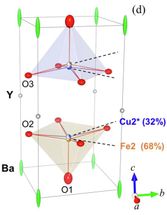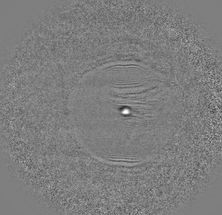Mapping oesophageal cancer genes leads to new drug targets
mutations that cause oesophageal adenocarcinoma (OAC) have been mapped in unprecedented detail - unveiling that more than half could be targeted by drugs currently in trials for other cancer types.
This research could help stratify oesophageal cancer patients to give them more personalised therapies. This could provide options not currently available to patients beyond standard chemotherapy, radiotherapy or surgery.
Cancer Research UK researchers at the University of Cambridge used whole genome sequencing and whole exome sequencing to map mutations in OAC, the main subtype of oesophageal cancer in England.
In the study, driver mutations for OAC were found in 99% of patients and more than 50% were sensitive to drugs (CDK4/6 inhibitors) already in clinical trials for breast cancer. This means phase II/III clinical trials to treat oesophageal cancer could be feasible in one to two years.
Interestingly, women were found to have more KRAS mutations than men. These mutations are often seen in other cancer types, but are rarely found in oesophageal cancer. This could indicate a different sub-type of the disease in women and suggest they may have a different prognosis or be eligible for other treatments.
Professor Rebecca Fitzgerald, Cancer Research UK funded scientist and lead researcher at the MRC Cancer Unit, said: "This research could completely shift the paradigm from giving oesophageal cancer patients the same chemotherapy that we know doesn't always work, to more targeted treatments based on individual characteristics of a patient's cancer.
"We are now designing clinical trials that provide real-time analysis of patients' genes to offer patients the best treatment based on their own genome.
"This research could also provide better options for older patients, who are more likely to develop oesophageal cancer, and who are often not fit enough for current treatment options."
Only around 12% of patients survive oesophageal cancer for 10 years or more. This is partly due to late diagnosis, as symptoms often do not present until the cancer is advanced, and partly due to limited treatment options. Scientists have found that more people are developing OAC in several countries in Western Europe, including the UK - risk factors include obesity and smoking.
Professor Karen Vousden, Cancer Research UK's chief scientist, said: "Research like this is crucial to improve treatment options and survival for patients facing a hard-to-treat cancer, such as oesophageal cancer.
"Understanding which mutations are causing the disease could lead to targeted treatments and earlier detection. This is something that would never have been possible without huge advances in technology."
Cancer Research UK is committed to funding more research on hard to treat cancers like oesophageal cancer, increasing spending from £5 million four years ago, to £16 million this year. In the UK, oesophageal cancer is the 13th most common cancer and the seventh most common cause of cancer death in the UK.
Original publication
Other news from the department science

Get the analytics and lab tech industry in your inbox
By submitting this form you agree that LUMITOS AG will send you the newsletter(s) selected above by email. Your data will not be passed on to third parties. Your data will be stored and processed in accordance with our data protection regulations. LUMITOS may contact you by email for the purpose of advertising or market and opinion surveys. You can revoke your consent at any time without giving reasons to LUMITOS AG, Ernst-Augustin-Str. 2, 12489 Berlin, Germany or by e-mail at revoke@lumitos.com with effect for the future. In addition, each email contains a link to unsubscribe from the corresponding newsletter.






















































